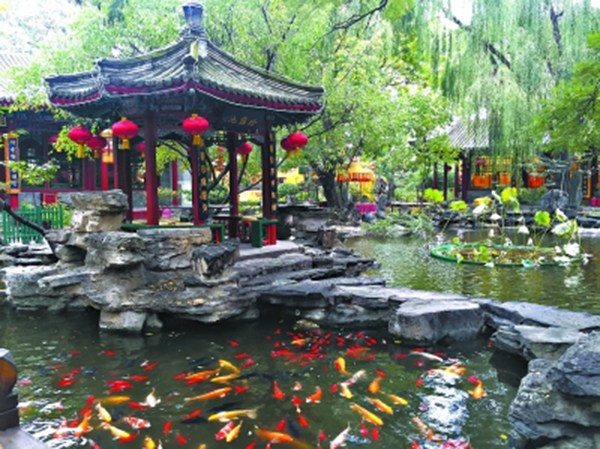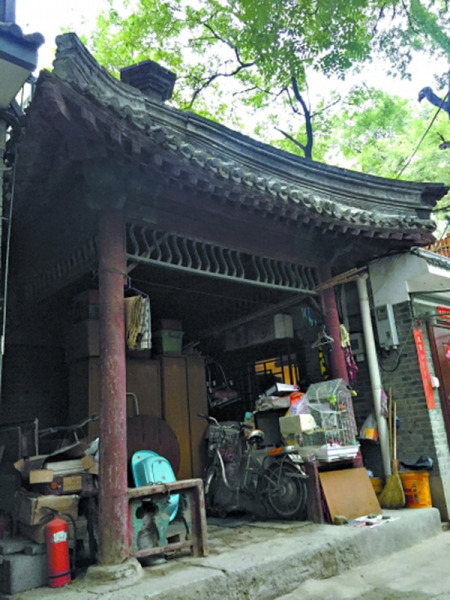
Picture shows a corner of the garden of the Le's family.A high-end restaurant turned it into a private premise in 2001. (Photo/Beijing Daily)
(Ecns) -- A garden with a history of over 300 years in Beijing banned visitors after being taken over by a high-end restaurant, according to Beijing Daily.
The garden, located near the Third Ring Road, used to be a royal estate before being transferred to the Le's family, founder of Tongrentang, a renowned Chinese medicine pharmacy at the end of the Qing dynasty.
In 2001, a luxurious restaurant took over the garden and turned it into a private property. Since then, only its diners are allowed a visit.
"I used to frequently walk in the garden during the 1990s," said a local resident, "but now I have to pay hundreds of yuan for entry."

As the Chinese capital for six dynasties, Beijing is home to thousands of ancestral gardens and royal estates. However, most have been tarnished or occupied, according to the first official survey of local historical gardens.
Results show that 423 of the 1094 recorded historical gardens in the city have kept their look, while most of the existing ones have been modified into offices, restaurants, clubs or residential yards.
Tiantan, the Temple of Heaven, is also facing the same problem. About 70 hectares of land at the site have been occupied by residential homes and small businesses, affecting its south wall.
The newspaper says that some of the occupations are caused by historical reasons. Some businesses have moved out after their premises were announced to be relics, while many others are still reluctant to go.
This year, Beijing listed 25 ancestral estates as the first batch to be managed under preservation. The city's legislators are also mulling over laws to regulate the use of historic properties.


















































